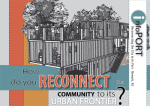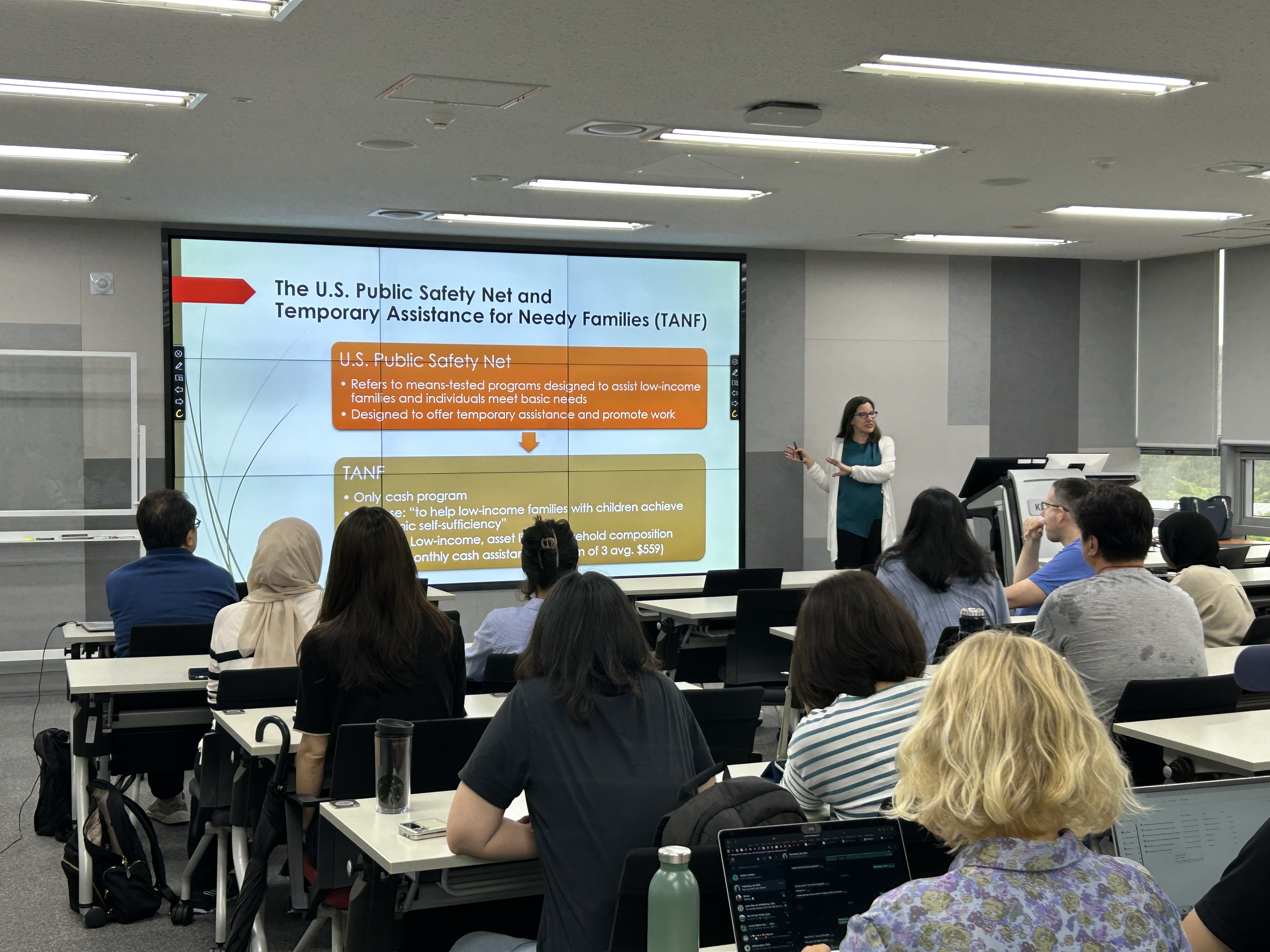 Earlier this year, Bloustein MCRP students Michael Lawson, Aimee Jefferson, and Pritpal Bamhrah participated in the AECOM Urban Frontiers International Design Competition, which sought integrated design, planning, environmental restoration and engineering responses that address border, gateway and edge/fringe conditions in cities worldwide. Proposals were to address urban sites currently facing chronic liveability challenges that are largely the result of a city’s location on a physical, political, cultural or economic border and were to have been implementable.
Earlier this year, Bloustein MCRP students Michael Lawson, Aimee Jefferson, and Pritpal Bamhrah participated in the AECOM Urban Frontiers International Design Competition, which sought integrated design, planning, environmental restoration and engineering responses that address border, gateway and edge/fringe conditions in cities worldwide. Proposals were to address urban sites currently facing chronic liveability challenges that are largely the result of a city’s location on a physical, political, cultural or economic border and were to have been implementable.
The Bloustein proposal, “infoPort: Reconnecting the City to its Port—Newark, N.J.” received top 30 recognition out of over 120 entries from around the world. Their project was one of only 10 from the United States to make it into the Top 30.
The goal of the infoPort proposal was to design amenities that would reconnect the city with its port while being sensitive to health and environmental concerns through information dissemination, workforce development, and the design of environmentally sensitive truck non‐idling zones. The students partnered with Ironbound Community Corporation, which is working effectively towards creating a just, vibrant and sustainable environment within the community.
The Ironbound—a small residential community in the city of Newark, NJ— is located next to the third largest port in the United States. Named “Ironbound” due to the neighborhood being surrounded by the region’s rail network, it is adjacent to major highways and Newark Liberty International Airport. Despite being located at such a prime location, the local communities have not shared in the billions of dollars of economic benefits that port commerce has generated for corporations in the international shipping industry. On the contrary, it has been dealing with the adverse effects of poverty, lack of job opportunities, major air pollution due to truck idling, truck traffic, and bureaucracy. The lack of knowledge about the port and non-involvement in the decisions made by the port authority has created a sense of divide between the port and the community.
The infoPort proposal was aimed at two major problems: lack of information, and the absence of a halting location for trucks awaiting entry in port for goods pick up and drop off. “This problem has been vexing community and port officials for years and often gets tied up in bureaucratic red tape,” noted the students’ project proposal. “Our outlook toward this problem looks at working with the community and proposing changes rather than just waiting for an authority to take action.”
The action plan included careful site selection for an information center as well as a truck stop. The Information Center, to be located on a street next to Newark Penn Station, would attract attention due to its proximity to mass transit. To be housed in a structure created using shipping containers, this becomes an ideal location to disseminate port-related information and make a positive impression on both the community and visitors by means of exhibitions, seminars, and port fests. A vacant site with an unused, dilapidated theater was selected for the truck stop. The area is surrounded by major highways and segregated from the residential community, so is a convenient setting for a non-idling, hygienic truck stop for drivers.
The proposed design solution uses easily installable structures to help provide the space to empower the community to help alleviate the problems surrounding it, which creates a sense of pride in the community for its port while also creating better and sustainable living conditions.
View the infoPort Project Proposal



